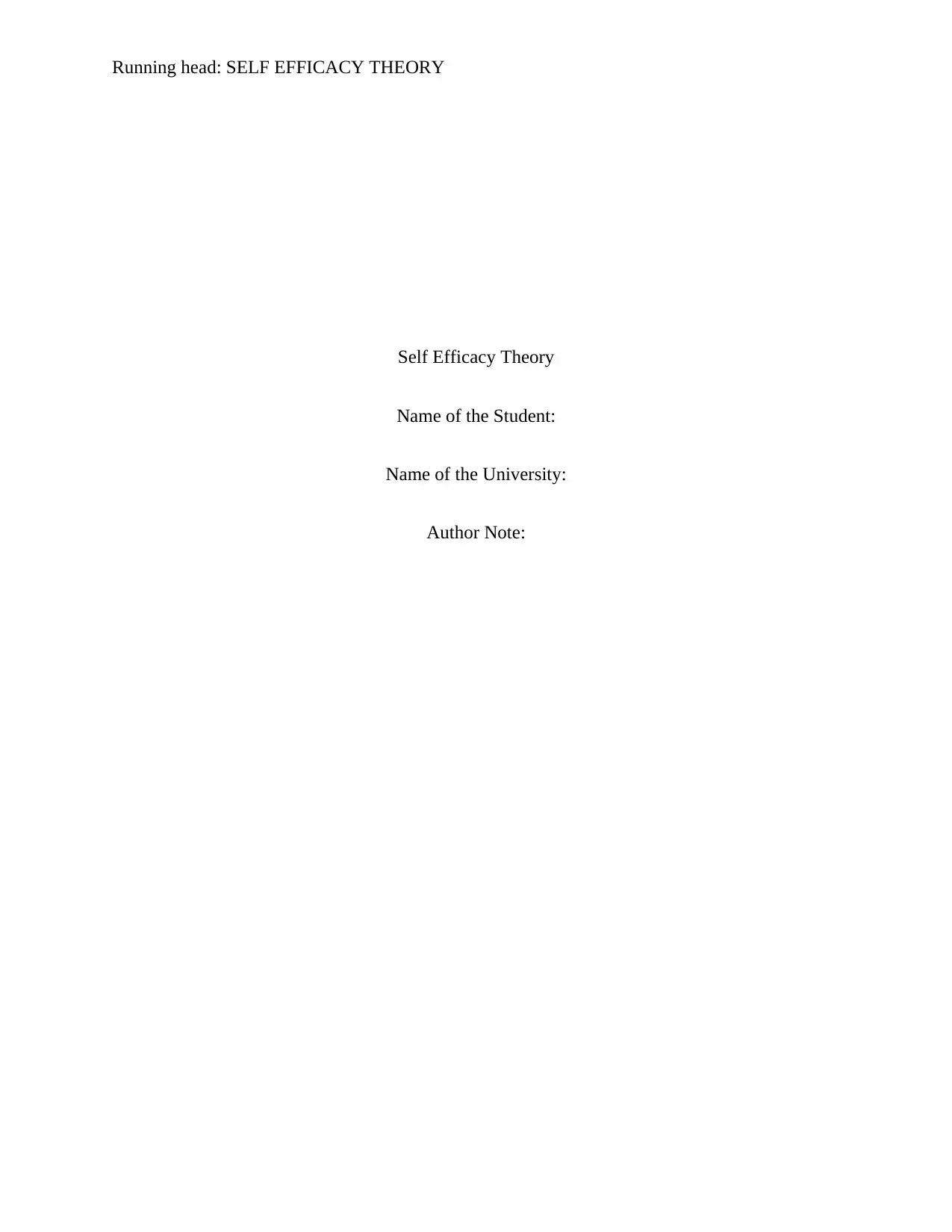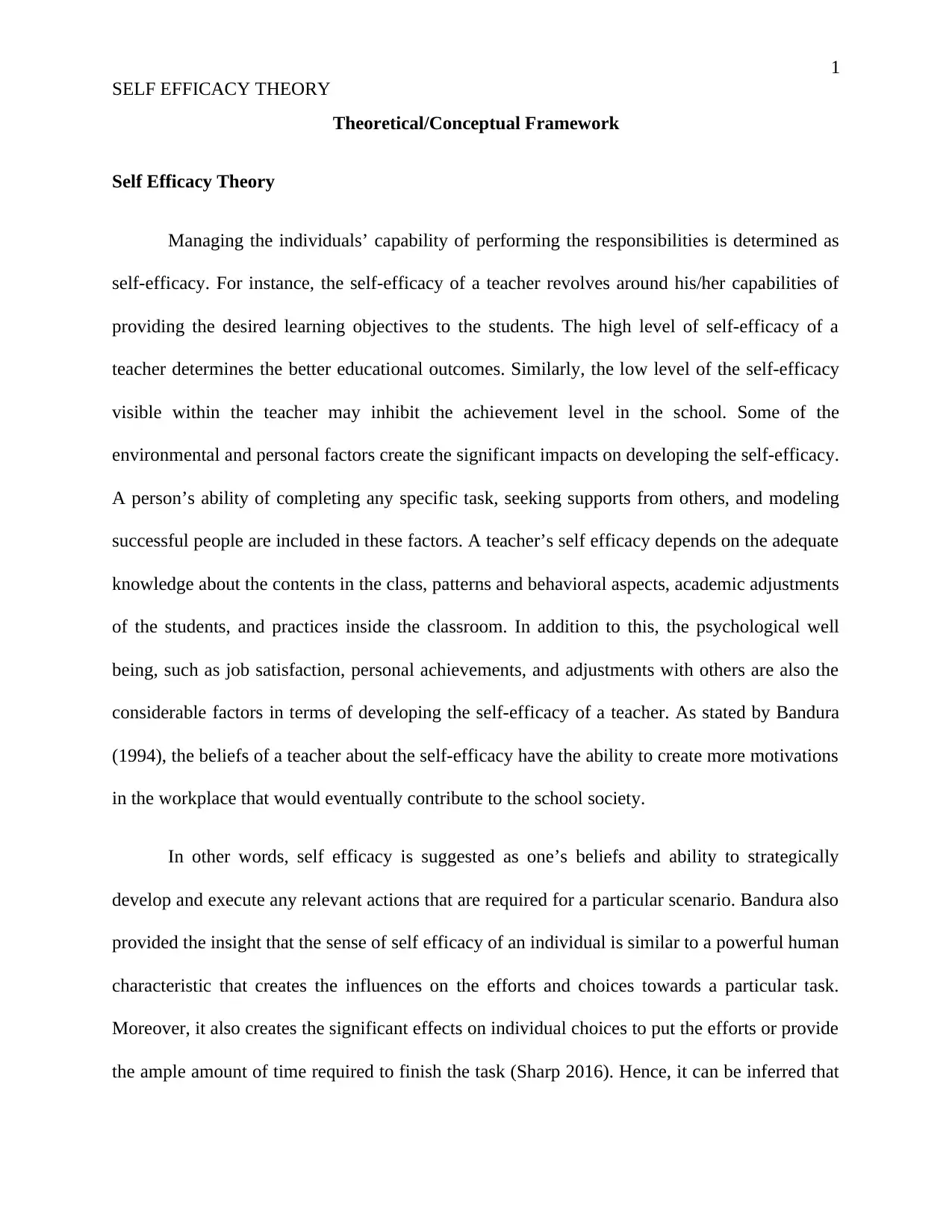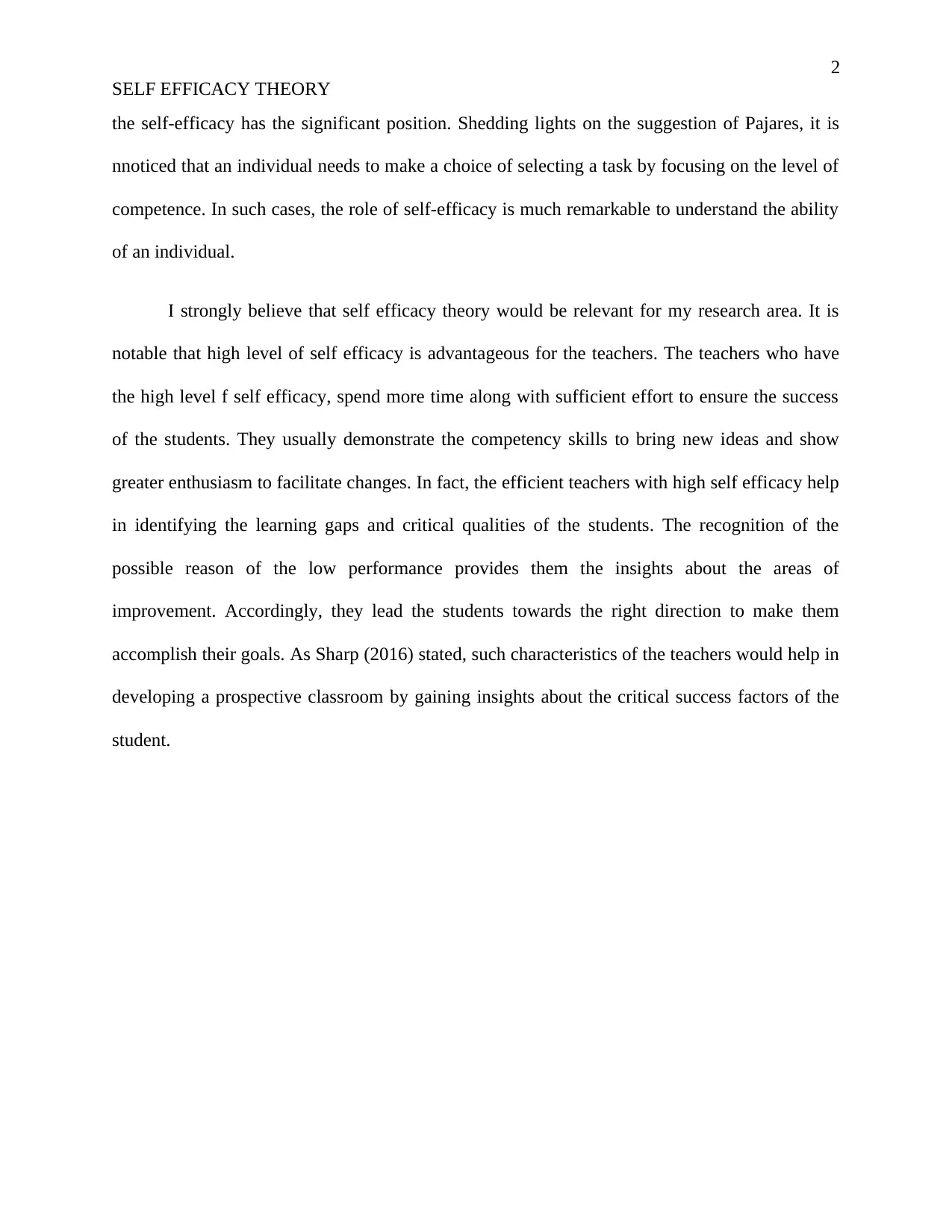Self Efficacy Theory: Exploring its Relevance and Impact
VerifiedAdded on 2020/05/04
|3
|578
|60
Essay
AI Summary
This essay delves into the Self Efficacy Theory, focusing on its relevance in educational contexts. It defines self-efficacy as an individual's belief in their ability to perform tasks and achieve goals, particularly in the context of teachers and their impact on student success. The essay highlights that teachers with high self-efficacy demonstrate greater effort, enthusiasm, and adaptability in the classroom, leading to improved student outcomes. It references the work of Bandura and others, discussing how factors such as content knowledge, classroom management, and psychological well-being influence a teacher's self-efficacy. The essay concludes by emphasizing the importance of self-efficacy in fostering a positive learning environment and achieving educational goals. The essay also includes the discussion of the impact of self-efficacy on student performance, the importance of teacher's high self-efficacy for better student outcomes, and the overall implications of self-efficacy theory in an educational setting.
1 out of 3










![[object Object]](/_next/static/media/star-bottom.7253800d.svg)